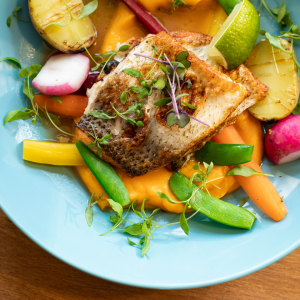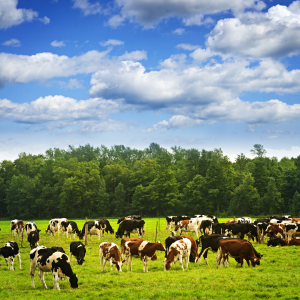EAT WELL GUIDELINES – The Foods I Recommend You Eat
I often get asked “What is the best diet?”
The answer is not a simple one…but is perhaps best answered by saying that there is no one-size-fits-all diet!
The best diet is the one the suits you now…and that might be different to what you ate when you were younger and may well be different to what will suit you when you are older.
There are, however, some general foods that I recommend you eat as part of my Eat Well Guidelines.
Most of us know that foods are made up of 3 major macro-nutrients: carbohydrates, fats, and proteins. Knowing which source of each of these should make up most of your diet can be helpful.
You are not just what you eat…you are, more accurately, what you absorb. So, it makes sense to eat high quality foods so that you feel better and perform better in life. If you eat SAD (Standard Australian Diet) foods you are probably going to feel pretty ‘standard’, which according to the stats is tired, sick, and fat, if not already, but eventually!
So, now is the time to plan to avoid feeling standard and instead eat to feel great!
The foods you eat are going to either promote health and energy, or not! What you eat will also determine how you feel about yourself, how you interact with other people and what you do in life. Don’t let poor eating habits be the thing that stops you from living your life to the fullest. Do your very best to absolutely nourish yourself with foods that will give you what you need to be able to do your life that way you want – physically, mentally, and emotionally – in all areas of your life.
Most of us are so out of touch with what it means to nourish ourselves, that we have no clue what is healthy. Plus, we must navigate the minefield of false information and empty promises out there.
So, I am going to share with you my Eat Well Guidelines so that you can get started on your way to wellbeing. These are the guidelines that I feel have most helped me in my life, and that have helped thousands of my clients, over the past 30 years in practice as a naturopath.
Let’s start with carbohydrates: Which carbs should you eat, and which should you reduce or eliminate?
Australian nutrition guidelines would have us believe that most of our diet should be made up of (1):
- Vegetables
- Legumes
- Fruits
- Grains
These are all carbohydrates. While thankfully the authorities remind us to limit added sugar and refined varieties of cereals, they fail to realise the load of carbs contained in the bread, pasta, and cereals that they recommend.
The low down is…some well picked complex carbohydrates eaten in the right amounts can be beneficial, but processed carbs eaten in excess contribute to metabolic disorders – weight gain, cardiovascular issues, and inflammation (2).
Basic science demonstrates that all carbohydrates break down into glucose. But not all carbohydrates are created equal, and some have disastrous affects on our body and others don’t. When grains are processed – they are stripped of fibre, vitamins, and minerals. This remaining lump of carbohydrate dumps glucose straight into your bloodstream when digested. This causes your pancreas to produce insulin to either use the sugar for energy or store it for later. Basically, all the other stuff that comes in the grain itself stops sharp spikes in blood sugar. When blood sugar spikes insulin releases in larger amounts which then tells your body to store more for later…which can store as fat around your organs. Then your blood sugar drops rapidly, and you end up hungry…your body is craving the nutrients removed by the processing. Most people then eat more carbs to try to curb their hunger.
Here’s the clincher…when you eat processed carbs, especially when combined with fat and salt (like in a pizza)…the feel good reward hormone, dopamine is released…and then you want more and more! It can become a vicious circle (3).
How do you break out of it?
Avoid processed carbs!
- Corn
- Fruit – dried and juiced
- Flour
- Commercial cereals
- Wheat
Stop eating junk!
- Boxed cereals
- Lollies
- Soft drinks
- Sugar – say “No!”
Curb your alcohol intake…
- Beer
- Liquors
- Mixers
- Wines
Then…pick your carbs well…and don’t overdo them. Be sure to combine them with protein and fat.
Here are the carbohydrates I recommend:
- Beans, chickpeas, lentils, and beans – occasionally and well-prepared
- Cruciferous vegetables – broccoli, Brussel sprouts, cabbage, cauliflower, radish
- Leafy greens
- Nuts and seeds – activated if possible
- Oats – occasionally, steel cut if possible, and soaked overnight
- Quinoa – occasionally
- Raw, local honey – in small amounts
- Root vegetables – carrots, parsnips, turnips
- Tubers – potatoes and sweet potatoes
- White rice
- Whole fruit
Get your protein right: Eat the best, minimise the rest
I used to be a vegetarian…this was in my teens and early twenties…and if I could take it back I would! Although, I didn’t like the way animals were being raised for food (and I still don’t approve of the commercial mass scale production of meat), I did it for a misguided idea of health. Now, I eat high quality animal-based protein (ethically and sustainably raised, grass-fed) and recommend my clients do the same.
Commercial, conventionally raised animal products tend to end up higher in omega-6 fatty acids due to their consumption of grains. There is enough evidence now to suggest that when eat a diet higher in omega-6 our ratio of omega-6 to omega-3 fatty acids blows out and contributes to metabolic disorders and disease (4).
With poor digestion now being a younger person’s problem…I am seeing reflux in younger and younger people…it means it is harder and harder for us to break-down plant-based protein to get the full spectrum of amino-acids that we need. We need to eat more plant calories to get the same aminos we’d get from meat. Animal-based protein already contains all the essential amino acids that our body requires. The idea that meat is harder to digest is a bit of a furphy! Animal protein gives you more per calorie. It is a much better deal!
I am not a fan of plant-based fake meats or meat substitutes. Nothing can really substitute for the protein you get in high quality animal products. Next time you are in a supermarket, pick up a plant-based meat product and look at the list of ingredients. Most contain processed oils, preservatives, and synthetic vitamins and minerals.
There are also certain essential nutrients that you can’t get in a vegetarian or vegan diet. Vitamin B12 is one…and I recommend supplementing with this and other key nutrients to optimise vegetarian and vegan diets.
So, here is what I suggest you avoid:
- Commercial/conventional dairy, eggs, meat, and fish
- Fast foods – fried animal proteins
- Plant-based meat substitutes
- Processed soy
Here’s a list of what protein I eat and recommend:
- Bone broth – grass-fed
- Caviar
- Collagen – grass-fed
- Greek Yoghurt – full fat, pot set
- Grass-fed, pasture-raised (if possible) beef, chicken, pork, turkey
- Grass-fed and pasture-raised organ meats – I have a great pate recipe
- Pasture-raised eggs
- Protein powders – high quality collagen proteins or a grass-fed whey – if required
- Wild caught fish – mackerel, salmon, sardines, and tuna – can be frozen, and can be tinned if in safe BPA-free tins
Now for fats! Poor old fats have been given a deliberately bad reputation via some poor studies backed by people with interests other than our health! So, let’s just lay it out!
- Saturated fats are not evil
- Hydrogenated commercial vegetable oils are bad for you
- Fat is a great source of energy
- We need fat for our hormones
- Fat helps regulate our metabolism
- Fats contain essential nutrients
- Fat regulates digestion
Absolutely stay away from:
- All processed vegetable oils
- Canola oil
- Margarine
Fats that get my thumbs up are:
- Avocados – whole and cold-pressed oil
- Cacao butter
- Coconut: oil – cold-pressed, virgin; full fat coconut milk
- Full fat high quality single source dairy – raw if possible
- Grass-fed butter
- Grass-fed Ghee
- Grass-fed and pasture-raised meats
- MCT oil
- Nuts – whole and butters
- Olives: whole, pitted, extra virgin oil
- Pasture-raised eggs
- Wild-caught fish
So, now you know the foods I eat and recommend…how do you go about eating these, in what amounts?
- Firstly, buy the best you can
- In my opinion conventional chicken is better than plant-based fake meat
- Buy local
- Buy seasonal
- Buy sustainably produced
- Buy organic veg if possible
- Protein is a must
- We need not too little and not too much
- About 20% of your calories
- You can increase your protein intake if (5):
- You are trying to lose weight
- Have blood sugar and metabolic problems
- You are re an athlete or work out hard
- You are chronically ill
- You are really stressed
- You are elderly
- Ask me what might be a great % for your currents needs
- Adjust your carbs and fats around the stable amount of protein (6)
- We need not too little and not too much
- Eat meals that are balanced well
- A rough guide is:
- half a plate veg
- quarter plate protein
- quarter plate fat
- fats and proteins usually come neatly packed together (meat, fish, eggs, dairy, nuts)
- A rough guide is:
- Eat your carbs when suits you best
- Consider eating carbs later in the day or after exercising
- Make sure they are high quality carbs
- Depending on your personal health status and current health goals…intermittent fasting might be a great goal
- Can you stop eating at 9pm and hold off until at least 9am?
- Eat slow and in a relaxed state
- Chew your food well
- Finish eating at least 2 hours before going to bed
The Eat Well Guidelines are the best recommendation I have after years of working with clients to help them learn how to help themselves back to health and wellbeing.
Food is a foundation for health.
Junk food leads to junk results.
Optimal food leads to optimal results.
Make every meal count towards your health…choose what you eat consciously and wisely.
- https://nutritionaustralia.org/fact-sheets/healthy-eating-pyramid/
- https://www.ncbi.nlm.nih.gov/pmc/articles/PMC4822166/
- https://www.bbdnutrition.com/2018/06/19/a-new-study-explains-why-carbs-and-fat-together-are-irresistible/
- https://www.ncbi.nlm.nih.gov/pmc/articles/PMC7990530/
- https://academic.oup.com/ajcn/article/82/1/41/4863422?login=true
- https://pubmed.ncbi.nlm.nih.gov/23107521/




